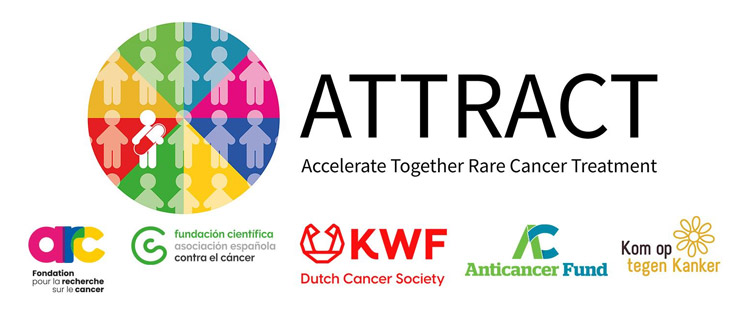The FOSTER-CabOs project has received funding for a clinical trial concerning osteosarcoma
The ARC Foundation, which has joined forces with four European cancer charities under the ATTRACT grant, awards funding to the FOSTER-CabOS project. The grant obtained through this call for projects will fund a European Phase III clinical trial to evaluate cabozantinib, a tyrosine kinase inhibitor, to treat osteosarcoma, a rare type cancer.

Related to the ATTRACT call for projects, the Foster (Fight OsteoSarcoma Through European Research) consortium has received funding to complete a European phase III clinical trial concerning osteosarcoma, a rare type of cancer that can affect teenagers, young adults and older people. This news is encouraging for patients and their relatives. For 40 years, no new treatment has received approval to fight this type of bone cancer. The FOSTER-CabOs clinical trial is coordinated at the European level by the doctor Nathalie Gaspar, oncopediatrician at Gustave Roussy. It aims to add a new 12 months maintenance therapy with cabozantinib after the end of the first line standard therapy protocol. The trial is randomized against placebo to evaluate the effectiveness of cabozantinib. This new therapy aims to improve the survival without events of patients. The acute toxicity of this oral treatment is different from chemotherapy. The benefit/risk balance of the drug will be assessed by observing side effects, as well as the potential impact of this maintenance treatment on quality of life.
Cabozantinib is a tyrosine kinase inhibitor with multiple targets. These types of inhibitors attack cancer cells that over-express molecules involved in tumor growth and the development of metastasis. They aim to prevent a relapse among patients that have already received a standard treatment for osteosarcoma.
The analysis realized in this European trial will allow to decide if the maintenance therapy with cabozantinib must be included in a future standard treatment for patients with osteosarcoma.
In practice
The randomized trial will compare different patients groups, through a process called stratification, based on usual prognostic factors (e.g. metastatic status when the diagnosis is performed, a bad histological response to chemotherapy …).
Ancillary biological studies (biopsies, blood samples) at diagnosis and during treatment will help identify other biomarkers of efficacy, improve the biological comprehension and adapt the treatment to the disease better.
In practice, patients with osteosarcoma, eligible for the trial and willing to participate, will be invited to give their consent to :
- Participate in the randomized trial at the end of the standard treatment, and receive for 12 months after the end of the treatment either cabozantinib, or a placebo, attributed randomly.
- Participate in auxiliary biological studies.
This protocol follows the Accelerate-Fair (Fostering Age Inclusive Research), allowing all patients to participate, whatever their age is, and if they do not have a counter-indication to cabozantinib.
